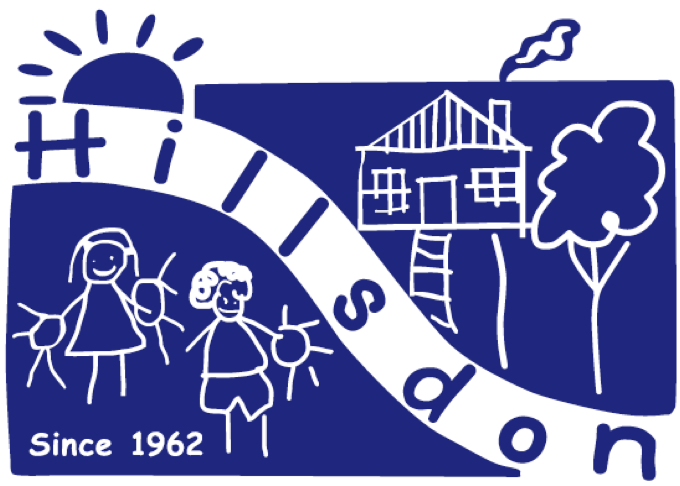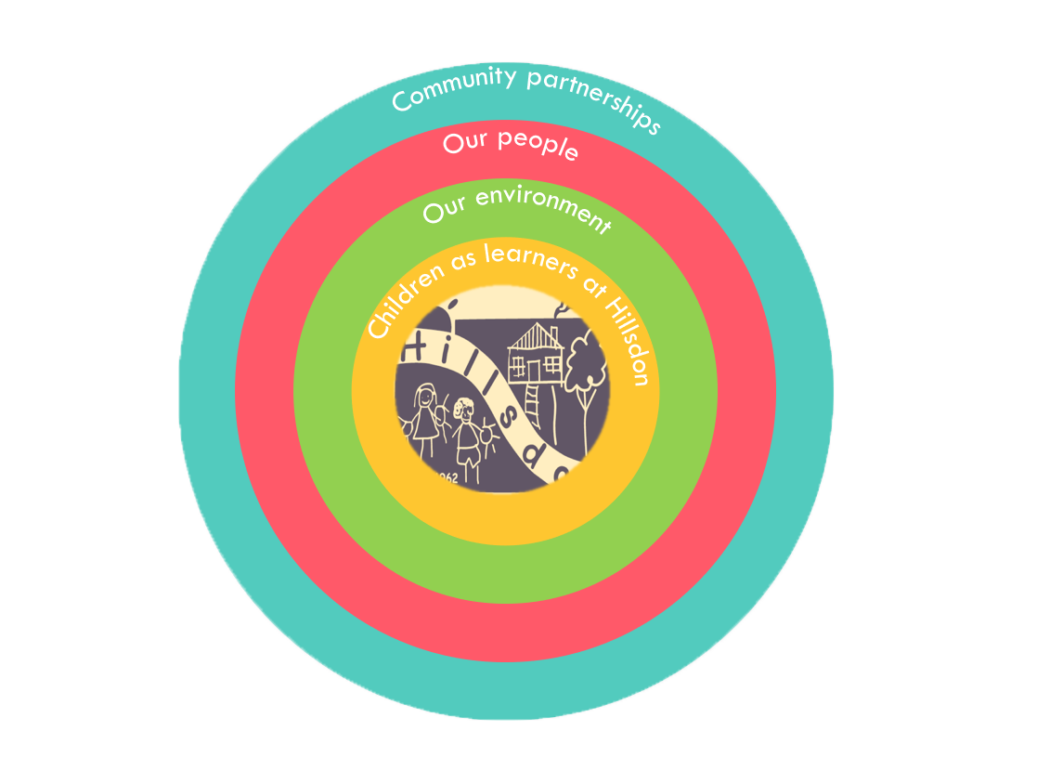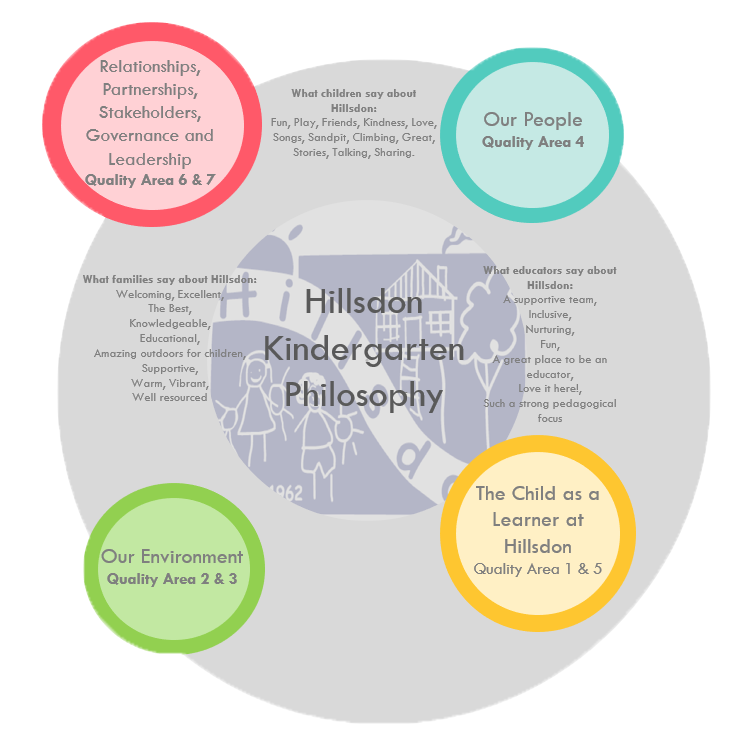-
Our philosophy
Our philosophy at Hillsdon is inspired by Bronfenbrenner’s Ecological Systems Theory (1979*).
We place the child as a learner at the centre of our focus. We believe that quality learning happens as a result of meaningful relationships between children and families, educators, our environment and our community.
We are committed to partnering with our Stakeholders:
Children, families, carers, Parent Management Committee, Lady Gowrie, Education QLD, Office of Early Childhood Ed & Care, QCAA, Brisbane City CouncilWe value our connections with our Community Partners:
Local Schools, Allied Health Professionals (including OTs, Speech Therapists, Psychologists), Local Emergency Services (Fire, Police, Ambulance), Local Government Agencies, Child Protection Organisations, local businessWe use the following documents to support Governance and Leadership:
Rules of the Hillsdon Association Incorporated (2019), Hillsdon Kindergarten Enterprise Bargain Agreement (2019), Policies and Procedures, Reconciliation Action Plan (RAP), Support Inclusion Plan (SIP).We view our environment as the third teacher:
Our beautiful heritage listed building and outdoor environment exceed the regulatory specifications for space in the early childhood sector. We believe that children have development benefit from being exposed to the challenging environment that our outdoors offers (as theorised by Malaguzzi, 1996**)We believe a safe and healthy environment is an important element in quality teaching and learning:
We work as a team to ensure all areas of the outdoor & indoor environment are supervised at all times. We are mandatory reporters and committed to embedding child-protection in our practice.We value sustainability and recognise the importance of the early years as a foundation for lifelong learning attitudes and behaviour:
We encourage children to respect and care for the natural environment by embedding sustainability practices within our program.We have a strong respect for diversity:
We respect the diversity of our community and recognise that diversity contributes to the richness of our society. We value the practices, values and beliefs of our families. We are committed to embedding Aboriginal and Torres Strait Islander perspectives within our program.We are committed to ongoing learning and reflective practice:
Our educators believe in ‘Best Practice’ and ‘Next Practice’ , being reflective, forward thinkers and seeking new professional learnings (via ongoing Professional Development) The Early Childhood Code of Ethics guides our professional practice.We believe that secure, respectful relationships with children support the development of a strong sense of wellbeing:
To support children to feel safe and secure at Hillsdon we use the Circle of Security (developed from Bowlby’s Theory of Attachment, 1969***). To guide our educators as we support children, we use the Choice Theory by Dr William Glasser (1999****) – We believe that children behave in a certain way to fill a need they have.We support children to develop Identity, Connectedness, Wellbeing, Active Learning and Communication:
We use the approved learning frameworks (QKLG and EYLF) to develop children’s sense of ‘belonging, being and becoming’ through child-initiated and intentional learning experiences. Our programs are play based and emergent. We believe children are agentic and resourceful and this is reflected in our program. We use data gathered from The Australian Early Development Census (AEDC) to support us to understand the children in our local community. We support children to become lifelong learners and school-ready.Theories that underpin our practice
*Brofenbrener, U. (1979), The Ecology of Human Development, Harvard University Press.
**Malaguzzi, L. (1996). The Hundred Languages of Children: The Reggio Emilia Approach to Early Childhood Education, Ablex Publishing Corporation.
***Bowlby, J. (1969). Attachment. Attachment and loss: Vol. 1, Basic Books.
****Glasser, William. (1999). Choice theory: a new psychology of personal freedom, Harper Perennial.




